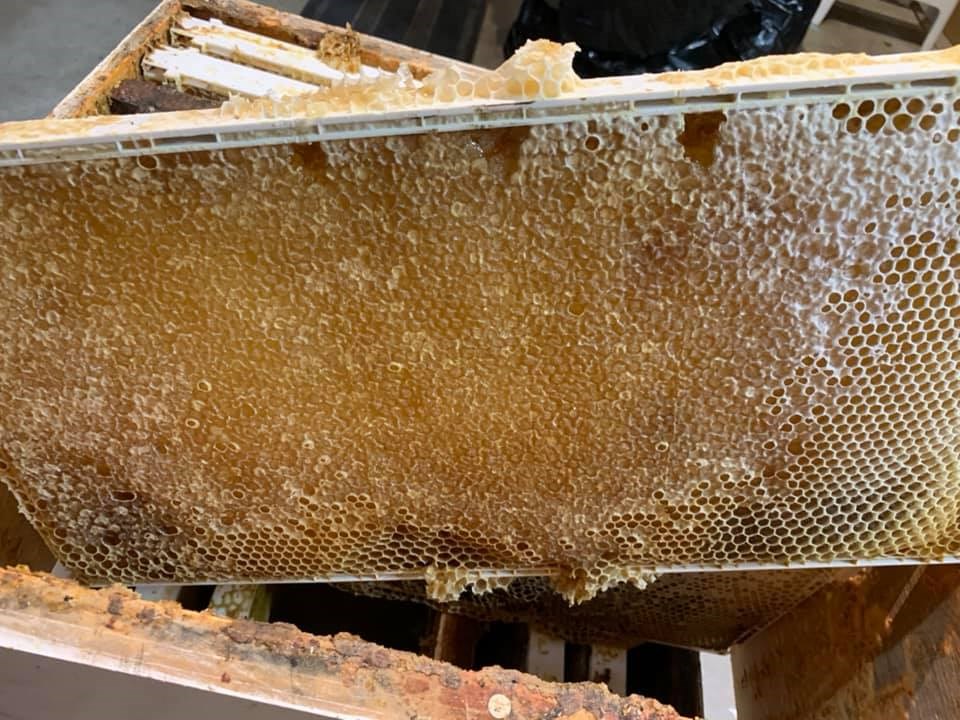Some Southern Alberta beekeepers are hoping for a sunny September, as this year’s late start to spring has caused significant delays to pollination season and the resulting honey production.
Cochrane beekeeper Brad Smith from Brad's Bees noted that the late start to spring this year has led to a notable delay of his honey operation.
“I normally am extracting honey by the 1st of July," said Smith. "It was pretty much the end of July before I was able to extract any honey. Hopefully it's going to be a warm fall, otherwise that'll really cut back on the whole honey production and also the ability of the bees to prepare for winter.”
Alberta’s weather this year has been difficult for those in the pollination industry. This can be challenging since much of the food grown in the province relies on the pollination of insects, particularly honeybees, in order to produce goods.
Farmers in Canada rely on pollination in order to grow fruits and vegetables such as cucumbers, melons, stone fruit apples, blueberries, and Saskatoon berries. But high production agriculture also relies on pollinators in many instances.
“The main crop that we need pollinators for is canola," explained Smith. "That's the biggest one for Alberta."
As a result, a difficult pollination season has the potential to disrupt local canola production, and any other resulting crops that rely on pollination. This highlights the importance of local pollinator health, beyond the production of just honey.
However, the year was not completely terrible across the board for local honey production. The owner of nearby Ol’ Grumps honey production Will Pratt said that this season still had some good times.
“A slower build up in the spring meant that there was less of a window for a strong colony to gather nectar at the right time, but there were some really great flows with all that moisture in the soil here and there,” said Pratt.
Pratt seemed to echo the idea that the heavy rain and frost in July caused the bee’s longer to warm up, but optimistically stated that their operation did not suffer too badly.
Smith explained how the current hope for local beekeepers is a warm September with plenty of rainfall and bloom. If there is a lot of frost, it will likely kill off a lot of the flowering plants while also causing the honey to crystallize in the hives.
All that local beekeepers can do now is hope for a sunny September with minimal rain and limited frost.
“The weather hasn't been the greatest, especially early on in the year," said Smith. "So yeah, I think this time will tell. We'll see what September holds."



